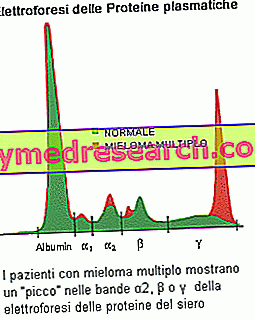
What is Emend?
Emend is a drug containing the active substance the aprepitant. The medicine is available as capsules (white and yellow: 40 mg; white: 80 mg; white and pink: 125 mg).
What is Emend used for?
Emend is an antiemetic, (a drug used to prevent nausea and vomiting).
Emend 80 mg and 125 mg capsules are used together with other drugs to prevent nausea and vomiting in adults caused by chemotherapy (drugs used to treat cancer). Emend is effective in chemotherapy based on cisplatin (a drug with a high emetogenic potential) and in chemotherapies that involve the moderate onset of symptoms of nausea and vomiting (based on cyclophosphamide, doxorubicin and epirubicin). Emend makes chemotherapy more tolerable for the patient.
The 40 mg capsules are used to prevent post-operative nausea and vomiting (PONV) in adults. Nausea and vomiting that can affect patients after surgery.
The medicine can only be obtained with a prescription.
How is Emend used?
During chemotherapy, the usual dose of Emend is a 125 mg oral tablet one hour before the start of chemotherapy. After chemotherapy, one 80 mg capsule should be taken every day for the next two days. Emend should always be given in combination with other drugs that prevent nausea and vomiting (such as dexamethasone) and 5HT3 antagonists (such as ondasetrone).
In the case of POVN, the usual dose is one capsule of 40 mg administered within three hours before the patient's anesthesia.
Emend can also be taken without food and the capsules must be swallowed whole.
How does Emend work?
Emend is a neurokinin receptor antagonist (NK1), which prevents a chemical in the body (substance P) from joining NK1 receptors. When substance P joins these receptors it causes nausea and vomiting. By blocking the receptors, Emend can prevent nausea and vomiting, which often occurs after chemotherapy or as a complication of surgery.
How has Emend been studied?
Regarding chemotherapy, three main studies have been carried out. The first two studies involved 1, 094 adults treated with chemotherapy that included cisplatin, and the third study involved 866 breast cancer patients treated with cyclophosphamide-based chemotherapy with or without doxorubicin and epirubicin. The three studies examined the effectiveness of Emend, taken in combination with dexamethasone and ondasetrone compared to a standard combination of dexamethasone and ondasetrone. The main measure of effectiveness was the number of patients who had symptoms of nausea or vomiting within five days of chemotherapy treatment.
Regarding PONV, two studies were carried out involving 1, 727 patients, most of whom were women undergoing gynecological procedures. Emend in two doses (40 and 125 mg) was compared to ondasetrone administered by injection. The studies measured the number of patients who gave a "complete response", that is, that they did not have any gagging and did not need other drugs to control nausea and vomiting in the 24 hours following the surgery.
What benefit has Emend shown during the studies?
In chemotherapy studies, adding Emend to the standard combination was more effective than the standard combination alone. Combined with the results of two studies of cisplatin-related chemotherapy, 68% of patients taking Emend had no symptoms of nausea or vomiting within five days of treatment (352 of 520), compared with 48% of patients not taking the medicinal (250 of 523). The efficacy of Emend was observed in a further five cycles of chemotherapy. In the study with chemotherapy with moderate emetic effects, 51% of patients taking Emend did not experience nausea or vomiting (220 out of 433), compared to 43% of patients who did not take the medicine (180 out of 424).
For the prevention of PONV, Emend showed the same efficacy as ondasetrone. Considering the results of the two studies together, 55% of the patients given Emend in doses of 40 mg gave a "complete response" (298 out of 541), compared to 49% of patients treated with ondasetrone (258 of 526) .
What are the risks associated with Emend?
The most common side effect of taking Emend in all doses (seen between 1 and 10 in 100 patients) is an increase in liver enzymes. With the doses of 80 mg and 125 mg, the other side effects recorded between 1 and 10 of 100 patients are: headache, hiccups, constipation, diarrhea, dyspepsia (indigestion)), eructation, anorexia, loss of appetite, asthenia ( weakness) or fatigue (tiredness). For the full list of all side effects reported with Emend, see the Package Leaflet.
Emend should not be used in people who may be hypersensitive (allergic) to aprepitant or any of the other ingredients. Emend in dosages of 80 mg and 125 mg should not be taken together with the following drugs:
- pimozide (used to treat mental illness),
- terfenadine, astemizole (usually used to treat allergy symptoms; these medicines can be purchased without a prescription);
- cisapride (used to relieve certain gastrointestinal disorders).
Emend should be used with caution if taken together with other medicines. In patients taking Emend, the effectiveness of oral contraceptives may be decreased. For more information, see the summary of product characteristics (also part of the EPAR).
Why has Emend been approved?
The Committee for Medicinal Products for Human Use (CHMP) has ruled that the benefits of Emend outweigh the risks for the prevention of PONV in adults and early and late nausea and vomiting caused both by highly hematogenous cisplatin-based cancer chemotherapy and that from moderately hematogenous chemotherapy in adults. The Committee therefore recommended that Emend be given marketing authorization.
More information on Emend
On 12 November 2003, the European Commission issued a marketing authorization valid for Emend, valid throughout the European Union, to Merck Sharp & Dohme Ltd. The marketing authorization was renewed on 11 November 2008.
For the full version of the evaluation (EPAR) of EMEND click here. Last update: 11-2008



